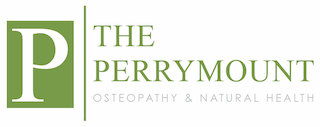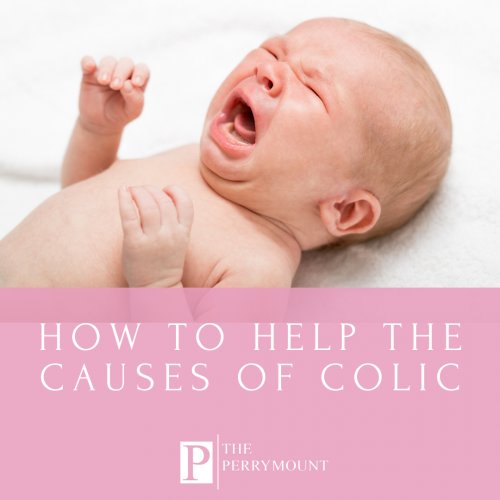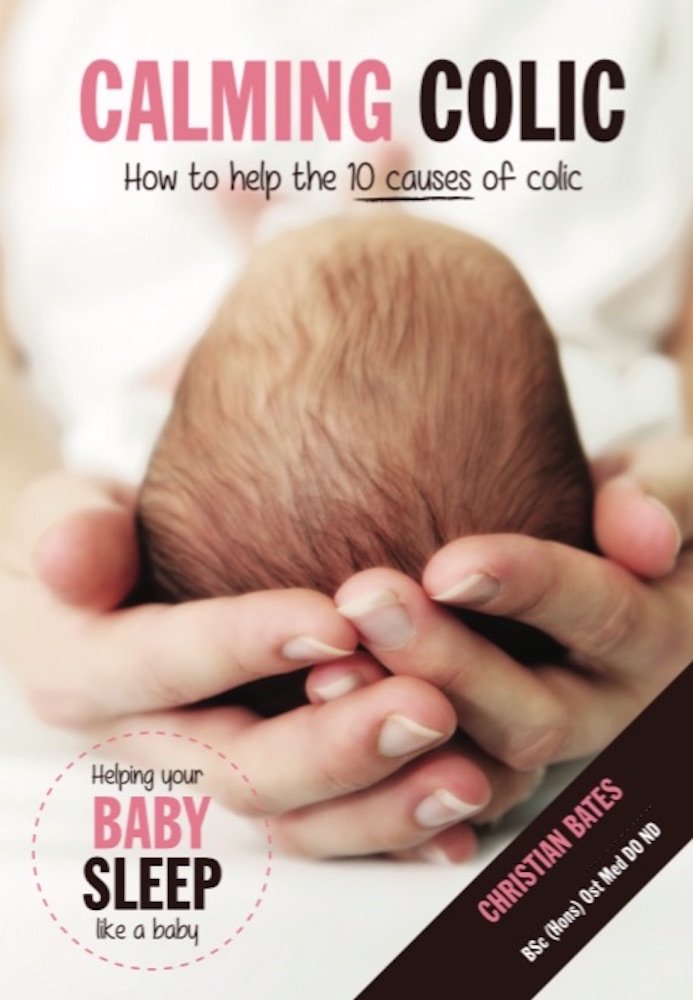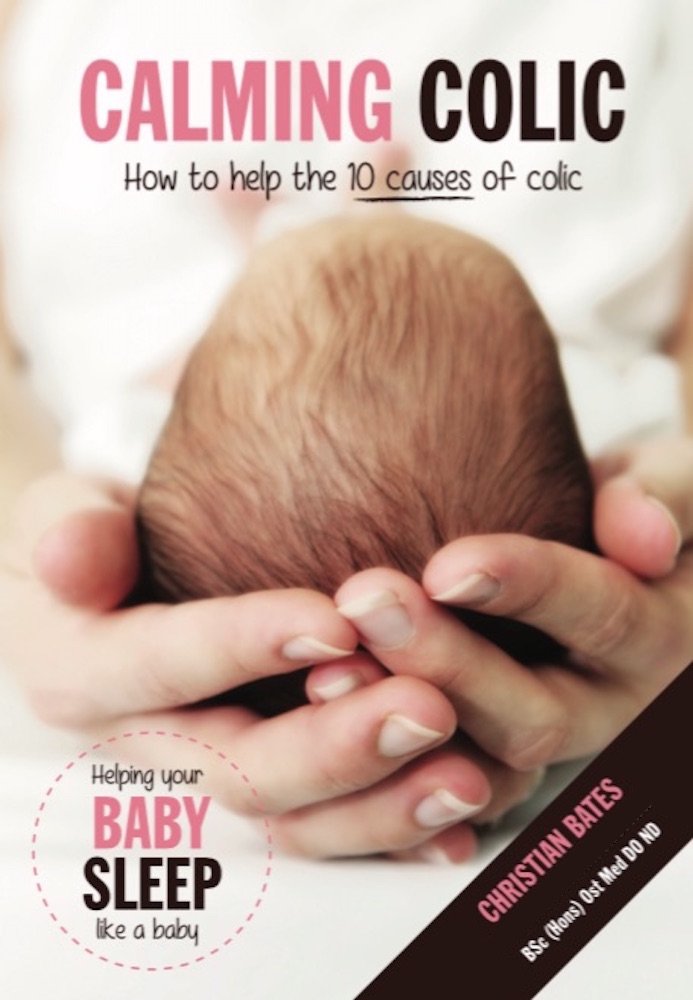This is taken directly off the NHS website after searching for information on colic:
“Colic is a common, but poorly understood, condition that affects babies. The most common symptom of colic is excessive and inconsolable crying in a baby that otherwise appears to be healthy and well-fed.”
It also says:
“The cause (or causes) of colic is unknown.”
“There is no evidence to suggest that colic has any long-term adverse effects on your baby’s health.”
“There is currently no cure for colic.”
The NHS are fairly definitive in maintaining that you aren’t really going to be able to help your child with their colic, which might make parents feel rather helpless and more than a little tired, and although colic in itself is harmless it can be very unpleasant for baby and parents when the knees-up, red-faced crying really gets going.
In my book Calming Colic - How to help the 10 causes of colic I have described a number of causes of colic that I routinely see in my clinic and addressed how to help them. Buy £3.99 immediate download here.
If you Google colic you will find the first page dominated by big websites such as Wikipedia, NHS, and BBC describing the symptoms of colic and offering some common sense help such as swaddling and shushing your baby, taking them for walks or drives in the car.
I know that investigating the CAUSES behind an individual baby’s colic is vital to get the quickest results in that particular baby so everyone in the family can start getting more sleep. Every baby has an individual story to tell about how they came into the world, and this helps me find specifically why they have colic and other dyscomfort.
Did they have a hospital birth?
A C-section?
Was the C-section emergency or planned?
In my experience both actually give a different sort of colicky irritable baby believe it or not. An emergency C -section baby probably had an elongated birth that didn’t go to plan but at least it will know that it was in the birthing process.
A planned c-section baby has no idea it is about to be born so when it is pulled out it can be quite unhappy and irritable!
These babies have a different “feel” compared to a classic tummy ache colic baby.
The first “causes” I started to regularly see behind colic was the use of antibiotics in either the mother at delivery, directly to the baby or to the breast feeding mother. I have yet to see an advice website that mentions this as a cause of colic yet I see this as virtually the number one cause. As we know the use of antibiotics is becoming incredibly routine and common throughout the whole population and it is no exception around delivery time and who can blame the birthing staff when dealing with such a precious new life.
After antibiotics another factor in the development of a baby’s gut bacteria is whether they have been born vaginally or by C-section. Research has clearly shown that the gut bacteria from these different types of birth varies considerably, the C-section babies having less “good” bacteria because a baby normally picks up their bacteria from the mothers vagina during the natural birthing process.
So when born by C -section they miss this process, have altered gut bacteria which leads to increased chances of colic. However, I am tending now towards the antibiotics having more of an impact than the C-section delivery. Either way help is available to correct both.
Back to the hospitals then; if different hospitals around the country (or world even) have differing rates of C - section deliveries then in fact there could be differing rates of colic in those areas. As it stands C-section rates are up to 25% of all deliveries last year.
I don’t suppose any mothers that fall into that category were given any hint or advice that their baby may be at greater risk of colic?
And certainly not to use a specific probiotic to help their child if this was the case?
Or even beyond this, if they are scheduled in for a planned C-section then they could have been fortifying themselves with probiotics in their last trimester to make sure their breast milk is of optimum quality.
I even found a fascinating study that mothers who were deficient in their first trimester in B12 had babies that cried more! How does that work? I’ve no idea about the specifics, the researchers didn’t even have a guess either. I do know though that we all need an adequate supply of vitamins and minerals and even more for a pregnant mother who is also supplying her growing foetus.
All mothers know to supplement folic acid, I feel this is misleading because it makes this single nutrient the most important in their mind, I think mothers should supplement with a high quality multi vitamin and mineral to give them a boost of all the nutrients, just in case.
The Future health of our children
As I was researching and writing Calming Colic it began to dawn on me that I was perhaps finding issues that could shape the future health of our children.
This is a difficult concept to put across because colic is only short lived, although 12 weeks of colic can feel like an eternity I’m told (my two boys didn’t have colic!).
I’m not saying that colic has long lasting effects, I’m saying that the causes that may have triggered colic can have longer lasting effects. More recently this has become more understood and even as I wrote the last page of Calming Colic some new research was released that I went back and included.
In this research 11,000 babies were followed and at three years of age the babies that had had antibiotics when they were under six months old were 22 percent more likely to be obese.
At last then an indicator that my ideas might be correct, that antibiotics in early life are detrimental in the future, in this case being linked to obesity. Can we further assume from this that if you follow the advice in this ebook and use friendly probiotics to correct antibiotic use that future diseases can be prevented?
I think it must be so to some degree especially as so many modern diseases are being linked to altered gut bacteria.
Everyone knows now that poor diet is bad for us and today’s chronic diseases are mostly caused by poor diet and a toxic environment.
Why not apply these facts to the health of our babies?
Ten or so years ago I made a decision to ask every breast feeding mother about the diet they were eating when breast feeding. This came about after having an extremely colicky baby coming to see me. After a few treatments the physical side of things was feeling great but the baby was still so windy and upset. So we tried a couple more treatments as maybe there was still room for improvement?
Still no change, but in this treatment the mother mentioned she drank two litres of Coke per day. Is it a surprise her baby was windy! The baby’s colic immediately went after she stopped drinking Coke, she hadn’t realised that what she ate was passed to her child, she had been told it didn’t matter what she ate as long as she keep her calories high to give her energy.
This thinking is very common and I have addressed basic advice in my book too, backing it up with research where possible.
In conclusion, I think that Calming Colic goes against conventional thinking in a positive way because it offers scientific and proven help to colic which is commonly thought of an "incurable".
It may not be a magic bullet in that it works instantly, although it can be fairly quick, but it will certainly make a real, noticeable, longterm improvement that is fixing the CAUSE of the problems, not just a quick symptom fix.
It will certainly be quicker than waiting 12 weeks!
On top of this Calming Colic gives parents answers, colic is such a mystery and parents want to help their distressed baby. If at least they understand more about the mechanisms behind that distress the they can start working on those and feel like they are participating in helping their newborn.
Calming Colic can be purchased as an immediate download
from www.calmingcolic.com
Christian works from The Perrymount Clinic in Haywards Heath. If you would like to book an appointment then visit www.theperrymount.com or call 01444 410944.
Do you have a questions? Then please email christian@theperrymount.com





